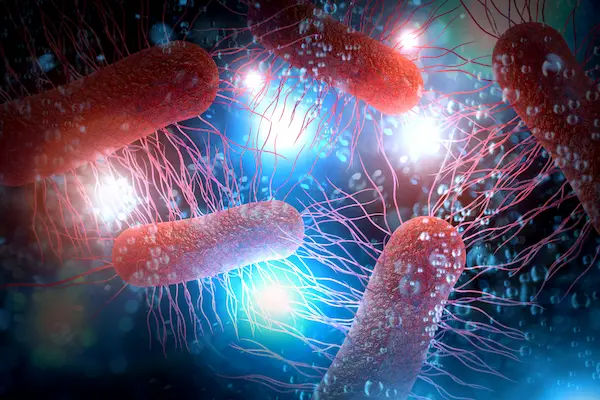Eczema: Causes And Treatments
Eczema is a common skin condition associated with inflammation, itching, soaring, etc. Check out the types of eczema, causes, treatment, and prevention options.

Written by Dr Sonia Bhatt
Last updated on 3rd Jul, 2025
Eczema is a chronic skin disease characterised by inflammation, redness, itching, and dryness. It can affect almost everyone, regardless of age, and can significantly affect the quality of life. However, to understand eczema, it is important to know the role of human skin. It acts as a protective barrier against environmental irritants and pathogens and safeguards the internal organs of the human body. It also plays a key role in retaining moisture and ensuring resilience. So, when eczema affects the skin, this barrier is compromised, which in time will hurt the internal organs.
Causes of Eczema
There can be several reasons that would cause eczema. It can depend on multiple factors ranging from genetic to environmental reasons. Here are more details:
Genetic Factors
Individuals with a family history of eczema are likely to get the disease. Also, certain genetic disorders can compromise the protective function of the skin, leading to this condition.
Environmental Triggers
Multiple environmental factors, such as exposure to allergens such as pollen, dust mites, and pet dander, can lead to this condition. Also, harsh chemical soaps and extreme weather conditions often flare up the triggers of this condition. So, sometimes, individuals experiencing drastic weather changes will encounter this problem.
Immune System Contribution
People with an overactive immune system may become prone to eczema. As the immune system responds excessively to allergens or other pollutants, the skin exhibits redness, swelling, and persistent itching.
Types of Eczema
There are different types of eczema, and each differs slightly based on its cause and symptoms. These are as follows:
Atopic Dermatitis: This is the most common form of eczema. It is indicated by itching and redness, and affected individuals may also experience inflamed patches.
Contact Dermatitis: As the name indicates, eczema is caused because of contact with allergens and chemicals. It can cause localised irritation.
Dyshidrotic Eczema: This is a type of small and itchy blisters on the hand and feet. It can be triggered by moisture or stress. It can also be caused by sweat or irritants like metals.
Nummular Eczema: This eczema appears in the form of a coin and can result from an insect bite or a burn. It is most likely to affect a person if their family members have a history of atopic dermatitis, allergies, or asthma.
Common Symptoms of Eczema
It must be noted that eczema may appear differently in different people. That is exactly why it is quite difficult to analyse and understand the symptoms properly.
Skin Redness and Itching
Dry and Scaly Skin
Blistering and Skin Lesions
Diagnosis of Eczema
There are several stages involved in the diagnosis of eczema. Based on the type of eczema, a physician can choose to decide the right options. Here are the most common and useful diagnosis options for eczema:
Physical Diagnosis
Physical examination of the skin is necessary, as individuals will require customised treatment according to their skin type. If one has clear signs of eczema, a streamlined physical examination can help the physician or skin specialist begin the treatment quickly.
Patch Testing
This should be one of the most powerful and reliable means to detect and diagnose eczema. It can be an excellent diagnosis option for contact eczema.
Blood Tests
Blood tests are another way to diagnose eczema. These tests can help doctors to rule out any other prevalent issues and identify if the cause of this condition is related to the immune system, or not.
Treatment Options
Based on the type of eczema, the doctor will suggest different treatment methods. Here are some of the popular options:
Topical Treatments
There are several treatment options that one can explore. Some of the prime options that doctors suggest would include using corticosteroids, calcineurin inhibitors, and moisturisers. These treatment options reduce inflammation and improve hydration.
Systemic Treatments
Eczema patients usually receive oral medication in severe cases, mostly where an overactive immune system is responsible for this condition. The treatment here would include using antihistamines or immunosuppressants.
Phototherapy
This treatment method involves exposing the eczema-affected region to controlled UV light. This has been known to address certain skin conditions.
Lifestyle and Home Remedies
Experts in skin care suggest opting for a few lifestyle modifications to help avoid the occurrence or recurrence of eczema. One may also use specific home remedies to help address the issues.
Moisturising Regularly
Proper and regular moisturisation can help hydrate the skin and thus safeguard it against eczema. It can help to restore the natural barrier function of the skin.
Avoid Possible Triggers
People should have a checklist of the triggers, like allergens, irritants, etc., that can cause eczema. Also, if someone has had eczema before, he/she should perhaps be aware of what caused it. That should help previously affected individuals avoid the recurrence of any possible episode of eczema.
Stress Management Techniques
Since stress is one of the primary reasons for flaring up eczema, one can consider using a few stress management techniques like yoga and meditation to help avoid these related triggers.
Diet and Nutrition
Diet and nutrition have a great impact on the skin conditions. Following are a few diet and nutrition-related options to ensure that one does not have any episodes of eczema flare-ups:
Foods to Include
Fatty fish
Flaxseeds
Walnuts
Yoghurt
Berries
Leafy greens
Carrots
Pumpkin seeds
Chickpeas
Lentils
Cucumbers
Watermelon
Foods to Avoid
Dairy products
Processes foods
Food items with rich sugar content
Spicy or acidic foods
Role of Supplements
Supplements can support eczema management by addressing nutritional deficiencies, reducing inflammation, and promoting skin healing.
Complications Associated with Eczema
If left untreated, eczema can result in serious complications. Skin specialists advise against ignoring the symptoms of eczema and addressing them early enough.
Skin Infection
Eczema can damage the skin and also affect its barrier function severely. This can make the skin susceptible to infections caused by bacteria, viruses, fungi, and other organisms.
Sleep Disorders
Eczema can cause severe itching. This can further lead to disruptions to sleep resulting in fatigue and subsequent lack of productivity.
Impact on Quality of Life
Severe itching and a sore appearance of the skin can affect one’s self-esteem and result in a loss of confidence. It can also negatively impact people’s social lives.
Preventive Strategies
Opting for a few preventive strategies can be helpful in avoiding the possibility of contracting eczema and allied skin diseases. Here are some tips:
Follow a Skincare Routine
Opt for regular cleansing and moisturising of the skin as this can help protect the barrier properties of the skin. That can further help avoid the infestation by microorganisms that cause eczema and other skin infections.
Use Protective Clothing
Wearing breathable and soft fabric can help prevent irritation and subsequent infection.
Allergen Control
Eczema is primarily caused by allergens and harsh chemicals. Avoiding exposure to these environments can help address the issues in many cases. It is also important to avoid dust mites and pet dander.
Conclusion
Eczema is a complex condition influenced by genetic, environmental, and immune factors. Early diagnosis and a personalised treatment plan are vital initial steps to cure this problem. At the same time, individuals need to combine them with medical treatments and lifestyle adjustments to manage symptoms effectively and get better.
Consult Top Dermatologist
Consult Top Dermatologist
Dr. Kavitha Killaparthy
Dermatologist
23 Years • MBBS,DIPLOMA(DERMATOLOGY,VENEREOLOGY,LEPROSY)
Hyderabad
JDS Skin & Hair Clinic, Hyderabad
Dr. Mayuri Jain
Dermatologist
11 Years • MBBS, MD Dermatology , Venereology & Leprosy
Delhi
Dr Mayuri Jain Clinic, Delhi
Dr. Paulomi Vartak
Dermatologist
2 Years • MBBS, MD (DERMATOLOGY,VENEREOLOGY AND LEPROSY)
Pune
Pramodini Urology Foundation and stree clinic, Pune

Dr. H R Yogeesh
Dermatologist
20 Years • MBBS, MD (Dermatology, Venereology & Leprosy)
Bengaluru
Akshata skin and hair care, Bengaluru
Dr.j Girishma
Dermatologist
6 Years • MBBS MD DERMATOLOGY
Bengaluru
Apollo Medical Center, Marathahalli, Bengaluru

